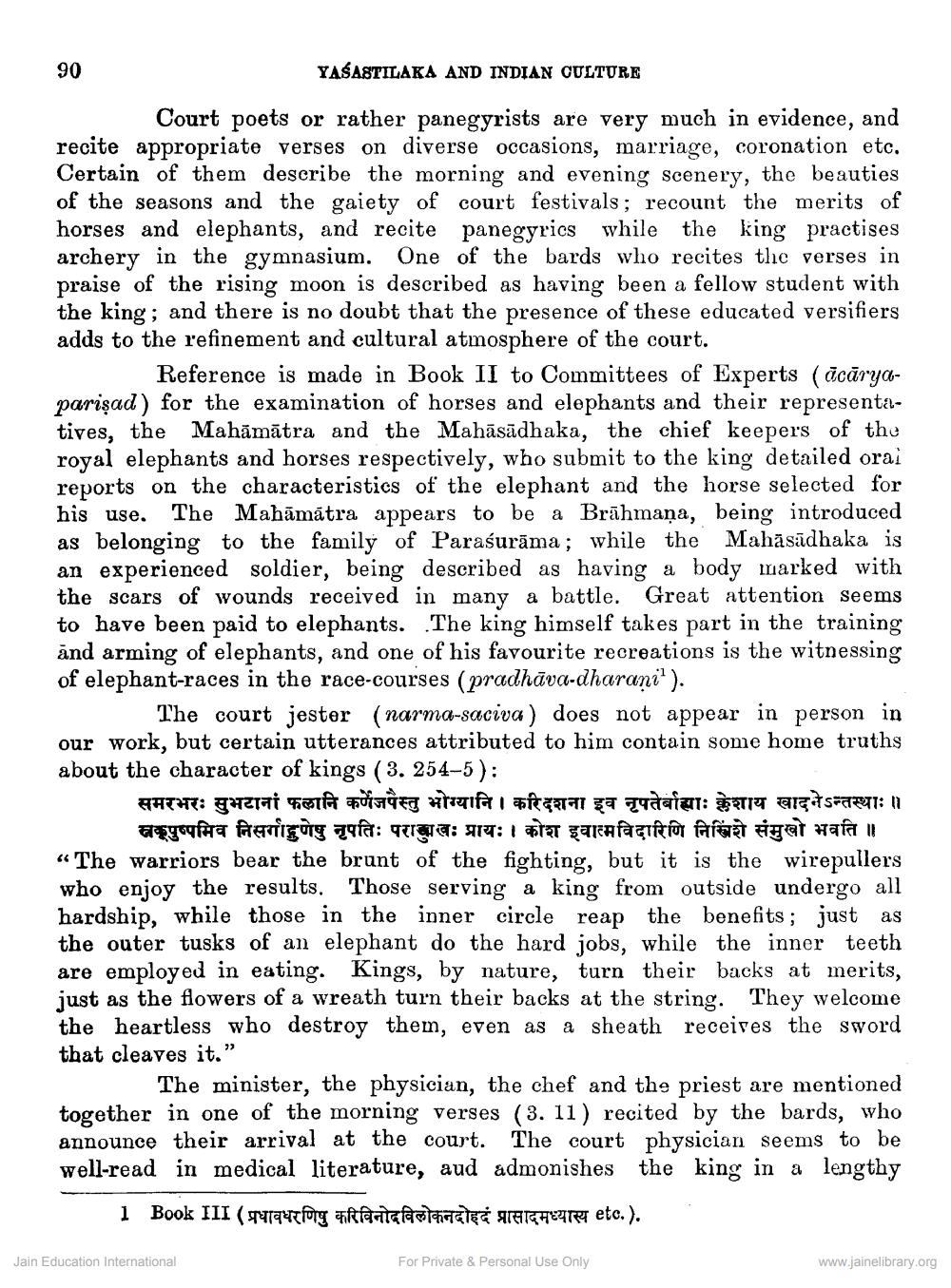________________
90
YAŠASTILAKA AND INDIAN CULTURE
Court poets or rather panegyrists are very much in evidence, and recite appropriate verses on diverse occasions, marriage, coronation etc. Certain of them describe the morning and evening scenery, the beauties of the seasons and the gaiety of court festivals; recount the merits of horses and elephants, and recite panegyrics while the king practises archery in the gymnasium. One of the bards who recites the verses in praise of the rising moon is described as having been a fellow student with the king; and there is no doubt that the presence of these educated versifiers adds to the refinement and cultural atmosphere of the court.
Reference is made in Book II to Committees of Experts (ācāryaparişad) for the examination of horses and elephants and th tives, the Mahāmātra and the Mahāsādhaka, the chief keepers of the royal elephants and horses respectively, who submit to the king detailed oral reports on the characteristics of the elephant and the horse selected for his use. The Mahāmātra appears to be a Brāhmaṇa, being introduced as belonging to the family of Parasurama; while the Mahāsādhaka is an experienced soldier, being described as having a body marked with the scars of wounds received in many a battle. Great attention seems to have been paid to elephants. The king himself takes part in the training and arming of elephants, and one of his favourite recreations is the witnessing of elephant-races in the race-courses (pradhāva-dharani').
The court jester (narma-saciva) does not appear in person in our work, but certain utterances attributed to him contain some home truths about the character of kings (3. 254-5):
समरभरः सुभटानां फलानि कणेजपैस्तु भोग्यानि । करिदशना इव नृपतेर्बासाः क्लेशाय खादनेऽन्तस्थाः॥
खपुष्पमिव निसर्गाद्गुणेषु नृपतिः पराबाखः प्रायः। कोश इवात्मविदारिणि निस्त्रिंशे संमुखो भवति ॥ “The warriors bear the brunt of the fighting, but it is the wirepullers who enjoy the results. Those serving a king from outside undergo all hardship, while those in the inner circle reap the benefits; just as the outer tusks of an elephant do the hard jobs, while the inner teeth are employed in eating. Kings, by nature, turn their backs at merits, just as the flowers of a wreath turn their backs at the string. They welcome the heartless who destroy them, even as a sheath receives the sword that cleaves it."
The minister, the physician, the chef and the priest are mentioned together in one of the morning verses (3. 11 ) recited by the bards, who announce their arrival at the court. The court physician seems to be well-read in medical literature, aud admonishes the king in a lengthy
1 Book III (प्रधावधरणिषु करिविनोदविलोकनदोहदं प्रासादमध्यास्य etc.).
Jain Education International
For Private & Personal Use Only
www.jainelibrary.org




